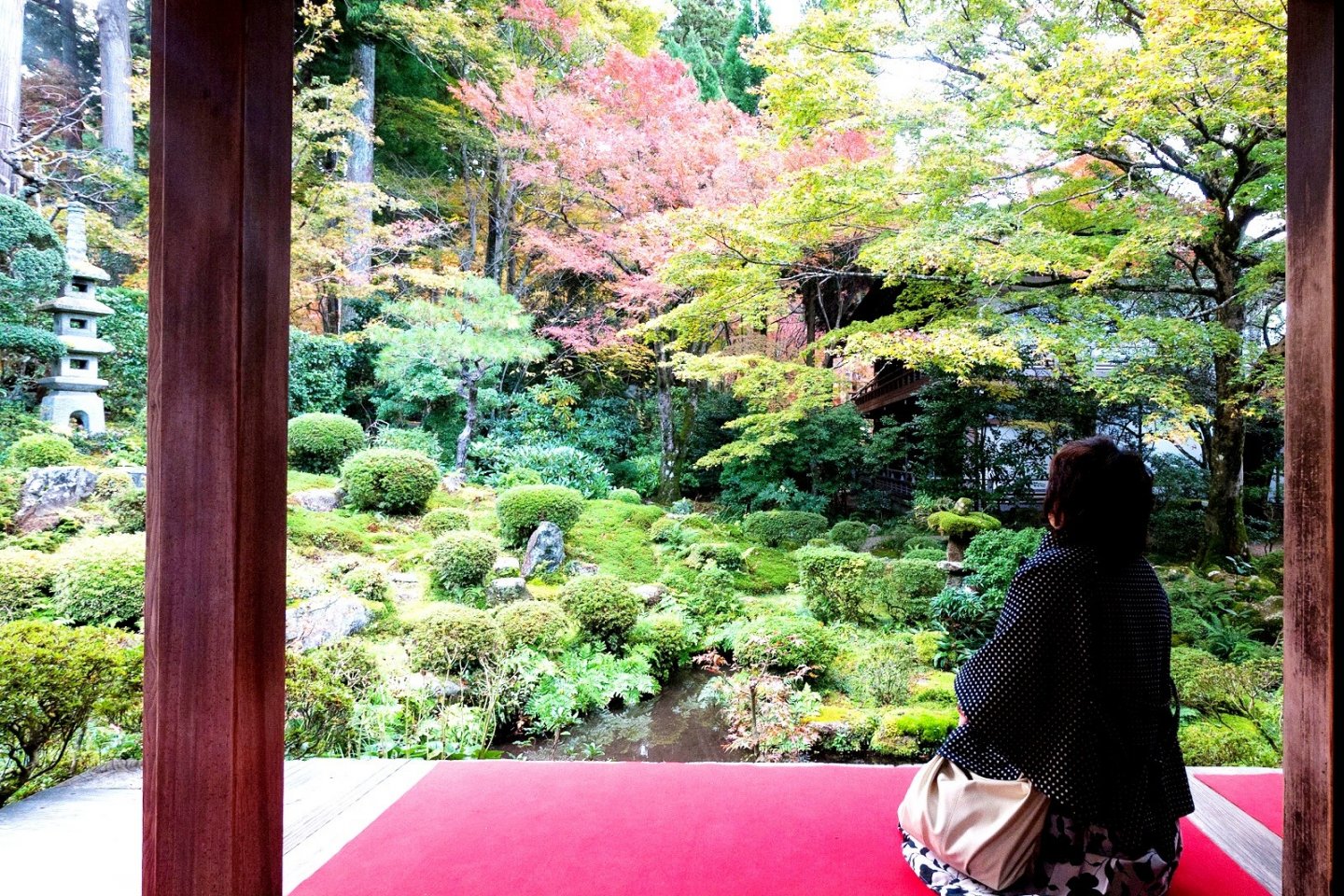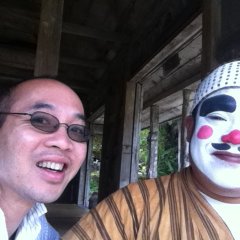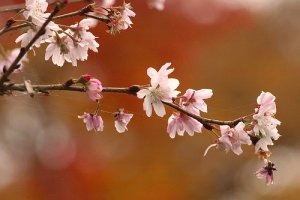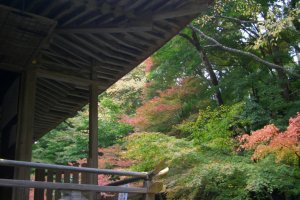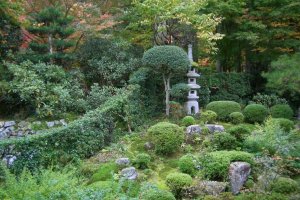If you have been watching various movies like memoirs of a geisha, you would be yearning for old Kyoto, where you can stroll among quiet gardens, and breathe in the Zen while taking tea for enjoying that golden moment when time stands still. In a city that is as famous for Nintendo Wii as well as geisha this can be hard to find, especially when you get off Kyoto station and are surrounded by modern architecture, crowds and busy department stores.
So where do Kyoto-ites go for a piece of old Kyoto? One such place is Ohara, a little village in the mountains a 60 minute bus ride north from Kyoto station.
Ohara was previously known as Ono in the Tale of Genji. In the novel Ono was known for the nunnery that Ukifune, a daughter of the Eighth Prince retired to. Not knowing who her father was, she was caught in a love triangle and tried to escape by throwing herself into the Uji River. After a miraculous rescue she spent her new life as a nun in the peaceful countryside surroundings in Ohara.
While you don’t have to be a nun to visit Ohara anymore, you can definitely experience the peaceful retreat that drawn Ukifune for her second life.
There are a number of beautiful gardens which you could spend an afternoon strolling, whether admiring the beautiful autumn leaves that this village is renowned for, or taking some green tea in the soft mountain sunshine.
I particularly like the gardens around Sanzenin and Jikkoin Temples. The temple also houses statues dating back to the 10th Century.
There are various walking trails in this complex and it is cover with beautiful moss gardens and cute statues. The lovely part of Jikkoin Temple is that the entrance fee (700 yen) includes a green tea and sweet, which is a great way to enjoy the scenery from the tatami mat for your tea break. I can imagine that after a few hours of strolling and travelling you would want to sit down and take it all in.
While you are strolling around the village, stop by at one of the miso shops and talk to miso makers for which Ohara is famous for. There are over a hundred different types of miso and one of my favourites is white miso. The local Saikyo miso has a fantastic sweet flavour and is the gourmet of misos, so it is usually used for sauces instead of soup.
Another part of Ohara’s farming roots is the “Oharame” women, who wear traditional farming dress and sell firewood and vegetables from carts around the village. You can see them at the Oharame Matsuri (Ohara Women's Festival) in the last two weeks of May.
My tips for Ohara are:
The fastest way to get to Ohara is by subway on the Karasuma Subway Line northbound to the last station Kokusaikaikan (20 minutes travel time, 280 yen). Get off and change to Kyoto Bus number 19 to Ohara (20 minutes travel time, 340 yen, runs every 40 minutes). This trip is not covered by the Kyoto City one day bus pass, so spend most of your day at Ohara rather than combining Ohara with a lot of other trips in Kyoto City. Alternatively, hop on a route 17 bus from JR Kyoto (60 minutes travel time, 580 yen, every 20 minutes) or Shijo-Kawaramachi (45 minutes travel time, 510 yen).
Stay at one of the ryokans (Japanese style inn) to experience the peace after the day-trippers have gone. Many ryokans also serve the famous miso nabe (hot pot).
Ohara is a little cooler than Kyoto, so this is a great place to go if you want to cool down in summer or wanting to see snow first in winter. It also gets the red leaves first in the fall, so unless you are leaving Kyoto early, avoid this time as Ohara can get crowded.
